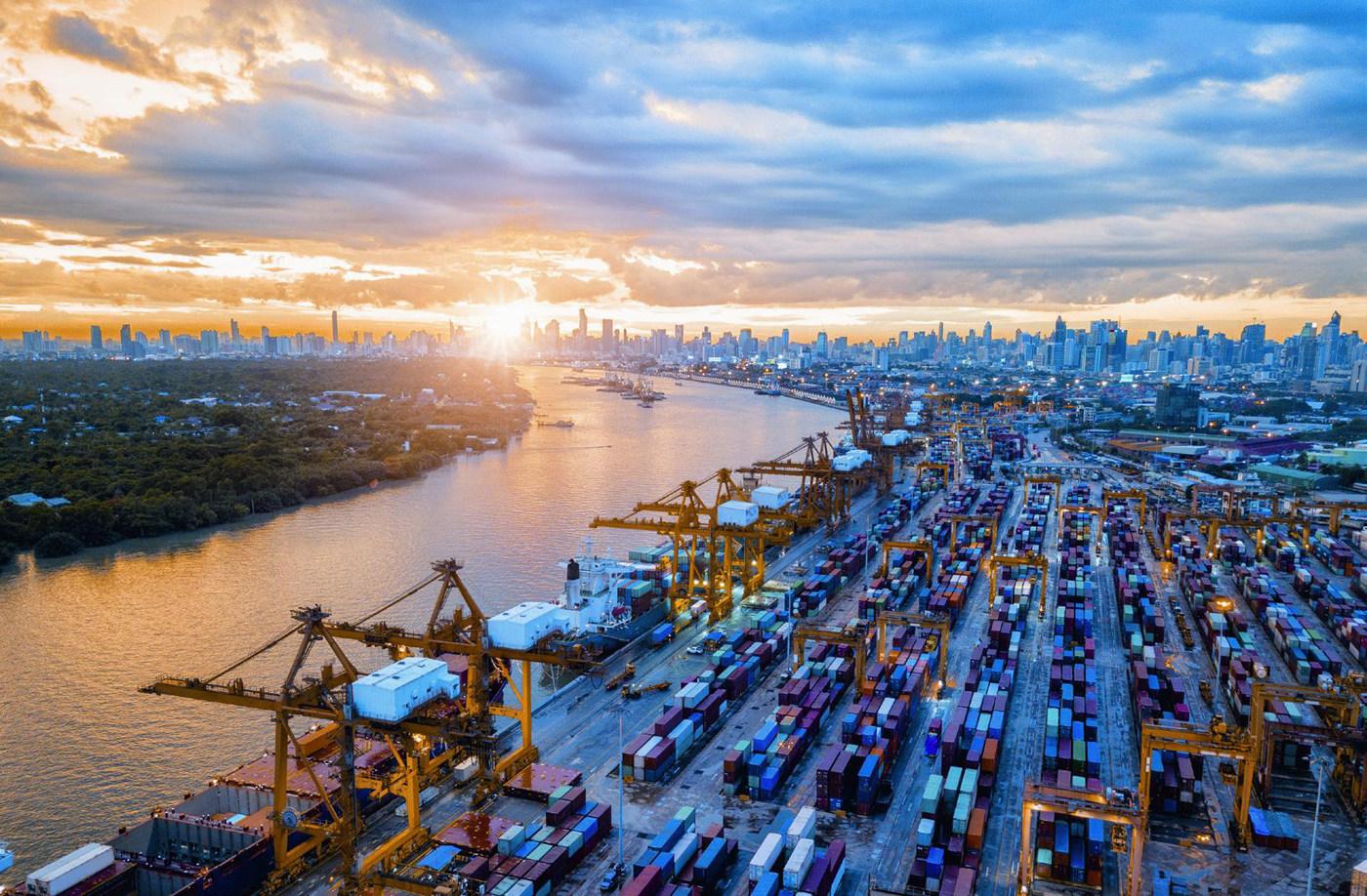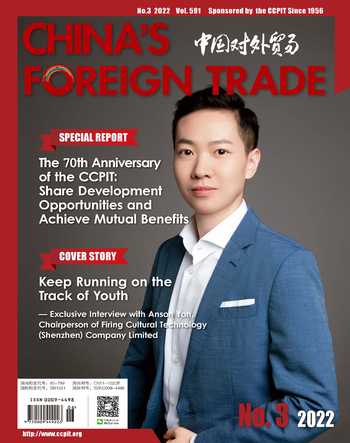China-Thailand Trade Enjoys Multiple Dividends With the Effect of the RCEP
By Andrey Guo

Located in the center of Southeast Asia, Thailand is an important hub connecting Asia-Pacific countries that are land locked with Asia-Pacific maritime countries, and plays a pivotal role in the development and prosperity of Southeast Asia.
In order to promote the high-quality development of the Belt and Road Initiative, optimize foreign investment promotion services, and help the stable development of China-Thailand foreign trade, the China Council for the Promotion of International Trade Commercial Legal Service Center(hereinafter CCPITCLSC), the Board of Investment of Thailand, and the Royal Thai Embassy in China jointly hosted a seminar on “Investment Opportunities and Policy Support in Thailand”, which attracted more than 300 representatives of Chinese enterprises from the fields of electronic information, financial technology and new energy.
China and Thailand have strong complementary industries
At present, with the pandemic still happening, the worlds economic recovery is insufficient, and the external environment is becoming more complicated and uncertain. To this background, in 2021, Chinas foreign investment cooperation developed steadily, with the total foreign direct investment of the whole industry reaching RMB 936.69 billion, equivalent to USD 145.19 billion, up 9.2% year on year. Thailands strong investment protection measures, convenient investment environment and preferential investment policies make it an important destination for Chinese enterprises to invest.
“Chinas Belt and Road and Thailands Industry 4.0 strategy have created a rare opportunity for China-Thailand economic and trade cooperation,” Zhang Shun, Deputy Director of the CCPITCLSC, said in his speech. He pointed out that these opportunities are manifested in the acceleration of China-ASEAN economic integration at the regional level in Southeast Asia, and in the increasing industrial complementarity between China and Thailand at the bilateral level. China-Thailand economic and trade cooperation has been fully launched in many fields such as trade, investment, infrastructure construction, finance and tourism.
In recent years, China-Thailand economic and trade cooperation has been enriched in content, expanded in fields and raised in level. China has been Thailands largest trading partner for nine consecutive years. In 2021, the trade between the two sides overcame the impact of the pandemic and exceeded USD 100 billion. Chinese enterprises in e-commerce, communication, automobile, photovoltaic and other fields have invested and set up factories in Thailand, and Thai agricultural products, rubber and electronic products are welcomed by the Chinese market.
On January 1st this year, the Regional Comprehensive Economic Partnership (RCEP) came into effect for China, Japan, New Zealand, Australia, and 6 ASEAN member countries including Singapore, Thailand and Vietnam. More than 90% of the goods trade will finally enjoy zero tariffs. Zhang Shun said that many contents of bilateral economic and trade cooperation between China and Thailand are carried out under the cooperation framework of China-ASEAN and the RCEP. The improvement of economic integration between China and Southeast Asia and the implementation of the RCEP will greatly promote bilateral economic and trade cooperation between China and Thailand. According to the statistics of the General Administration of Customs of China, in the first two months of this year, the total import and export of China and RCEP trading partners was RMB 1.85 trillion, a year-on-year increase of 9.5%, showing a strong growth momentum.
Zhang Shun pointed out that under the RCEP framework, China-Thailand economic and trade cooperation will certainly reach a new level. China and Thailand will further open markets such as fishery products, paper making and auto parts, and make high-quality commitments to non-service industries such as agriculture and manufacture by negative list, which will attract more Chinese enterprises to invest and build factories in Thailand. The RCEPs institutional arrangements on e-commerce and intellectual property rights will further facilitate cross-border e-commerce and digital economy cooperation between China and Thailand, promote the flow of innovative resources between the two countries, and jointly grasp new opportunities in the digital age.
“Thailand can be an important gateway for China to deepen the relationship between China and ASEAN member countries,” Narit Therdsteerasukdi, Deputy Secretary General of the Board of Investment of Thailand, commented. He said that under the “BioCircular-Green” (BCG) economic model of the Thai government, Thailand has strong potential to become a regional center of sustainable development enterprises, and Chinese enterprises and technologies will play a key role in Thailand.
Chiyawan Chongvatana, Commercial Minister of the Royal Thai Embassy in China, said that in recent years, the economic and trade cooperation between China and Thailand has been stable, and the investment cooperation between China and Thailand has gradually formed a multi-level, multi-channel and allround cooperation. She believes that the official entry into force of the RCEP in China and Thailand will further enhance the confidence of Chinese and Thai investors. The high-level free trade environment created by the RCEP will bring more integration and complementary effects to China-Thailand investment cooperations.
Introducing a number of preferential policies
In recent years, the “Thailand 4.0”economic development strategy put forward by Thailand and the construction project of the Eastern Economic Corridor (EEC) has become the focus of investors from all over the world.
According to the Bangkok Post on March 2nd, the Thai Cabinet approved the special incentive measures in seven economic zones include the EECa (Eastern Airport City), EECi (Innovation Hub), EECd (Digital Park), EECmd (Medical Hub), and EECg (Genomics Thailand), the Eastern Economic Corridor of High-speed Railway (EECh) and the Digital and High-tech Center. The Cabinet also allows the EEC office to provide special policies to investors in seven regions according to specific situations to attract investors.
At this seminar, Ansutong Vasu San, Deputy Director of the target industry promotion department of the Eastern Economic Corridor Office, said that the Eastern Economic Corridor program aims to strengthen the eastern coast of Thailand, which has been a regional manufacturing and trade center for more than 30 years. He introduced in detail the infrastructure of the eastern economic corridor, the development of the digital economy and the industrial fields that enterprises can focus on.
At present, the business environment in Thailand is optimistic, attracting many foreign companies to invest in Thailand. According to statistics from Thailand, in 2021, among the foreign projects applying for investment promotion in Thailand, Chinas project applications ranked second in terms of total value. A total of 112 project applications were submitted to the Board of Investment of Thailand, with a total investment value of THB 38.567 billion (about RMB 7.276 billion), an increase of 25% compared to 2020.
Wantana Tatan, Minister Counselor(Investment Promotion) of the Royal Thai Embassy in China and the Director of the Beijing Office of the Board of Investment of Thailand said that among the projects that Chinese enterprises applied for investment in Thailand, the industry with the highest investment value was the electronics and electrical appliances industry, with an investment of THB 18.334 billion; followed by metal products manufacturing and machinery industry, with an investment of THB 9.223 billion; then there is light industry, with an investment of THB 4.923 billion. In terms of the number of projects, the metal products manufacturing industry and machinery industry have applied for the largest number of investment projects, with 27 projects.
Wantana Tatan said that in order to attract more investors to invest in Thailand, the Thai government has introduced many preferential policies, such as a tax-free period of up to 13 years, to attract high-tech industries to settle in Thailand, especially in the eastern economic corridor.
Thailands investment policy, which provides preferential rights and interests in tax and non-tax, has promoted foreign enterprisesinvestment in Thailand to a certain extent. For example, exemption of enterprise income tax, halving of enterprise income tax, exemption of import taxes on machines, exemption of import taxes on raw materials used for producing export products and R&D, etc. Non- tax preferential rights and interests include(except for industries specially stipulated by law) allowing foreign investors to hold large shares or wholly-owned shares; allow land ownership for use in investment-promoted projects; allow foreign executives, experts and their families to enter Thailand, and allow foreign executives and experts to work in projects that have received investment promotion; and allowing foreign currency remittance.
It is understood that the the Board of Investment of Thailand has set the industries with development potential and conducive to promoting Thailands economic development as target industries, with a total of ten categories, namely, the transportation industry in the new era; smart electronics industry; agricultural biotechnology industry; machinery, automation and robot industry; advanced materials, special chemicals/polymer industries; digital industry; comprehensive medical industry; circular economy related industries; high value-added services, such as R&D, high-quality tourism, international business centers and human resources development; and logistics and public facilities industries.
Wantana Tatan pointed out that projects using important technologies can also get investment, namely biotechnology, nanotechnology, digital technology and advanced material technology. Such projects can get higher-level special preferential rights than general projects. If the project helps to enhance Thailands national competitiveness, or is located in a special promotion area, such as the Eastern Economic Corridor of Thailand, special economic development zone or industrial park, additional preferential rights can be obtained.
In addition, the Thai government regards the “Bio-Circular-Green” (BCG) economic model as their national development concept. Thailand is rich in biodiversity and agricultural products. The purpose of adopting BCG economic model is to give full play to these advantages and make full use of resources, to maintain the safety of raw materials and a balance of the ecological environment.
Wantana Tatan suggested: “Chinese enterprises have great potential for technological and innovative development in the above target industries, and the Thai government also has special support policies for these industries. Therefore, Chinese and Thai investors can take this opportunity to cooperate with each other, jointly develop and invest in the abovementioned target industries in Thailand, and use Thailand as a base connecting the ASEAN market and the world market.”
- China’s foreign Trade的其它文章
- The Beijing Initiative of the Global Trade and Investment Promotion Summit Was Released
- The 70th Anniversary of the CCPIT:Share Development Opportunities and Achieve Mutual Benefits
- CCPIT Signs MOU on Strategic Cooperation with SINOSURE
- The 2022 Boao Forum for Asia for Global Development and A Shared Future
- China and New Zealand Move to“RCEP+”Cooperation
- China Is Still Regarded As One of the Major Strategic Markets

